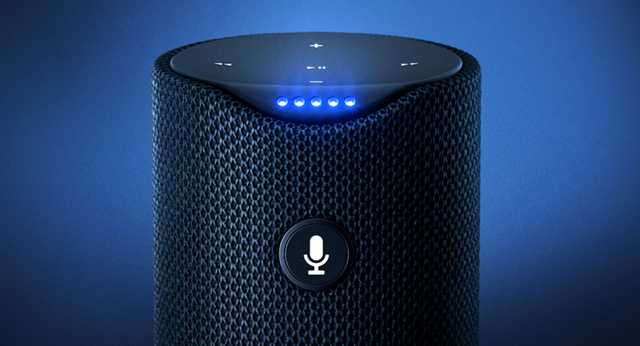Amazon spent years to bring Echo from an idea to an intelligent, voice-controlled product that could play music, order groceries and read the news out loud. Amazon chief executive Jeff Bezos demanded perfection, bringing latency levels to below 1.5 seconds, and the result is that Echo and its virtual assistant Alexa are a hit. In less than two weeks, Echo hit a million pre-orders, which took the iPhone 70 days to achieve. Amazon is now letting third-party hardware manufacturers integrate Alexa into their products.
Business Insider quotes Amazon executive Dave Limp as saying, “I can’t underestimate the amount of work and invention that went into this.”
When Amazon began working on Echo in 2011, there was nothing to model it after. But Bezos and his team knew Alexa needed to be “very responsive and conversational… It really had to feel like talking to a human being.” The goal was also to use the voice system in other devices, “as a broader platform.”
When more than 40 percent of early Echo users said their “main intent was music-related,” Amazon “doubled-down on making music a more prominent feature.”
TechCrunch notes the ways that Amazon is already improving its tools for third-party manufacturers, particularly with Alexa Voice Service (AVS), by allowing developers to add Alexa controls to their own devices, including the ability to change volume, control media playback and set and manage alarms.
Debut partners in integrating AVS include Scout, which is building Alexa into its home security system and Toymail, which puts messaging features in a cuddly toy. With AVS and its Alexa Skills Kit (ASK), says TechCrunch, Amazon is “paving the way for an entire Alexa ecosystem to emerge.”
VentureBeat reports the important role Alexa is playing in bringing artificial intelligence into the mainstream. A User Adoption Survey from predictive speech analytics company MindMeld reveals that “use of voice-based intelligent assistants has reached a tipping point,” with more than 50 percent of respondents having tried voice assistants and more than 30 percent becoming “regular users” (daily or weekly). Half of those who use assistants are “satisfied” or “extremely satisfied.”
In contrast, PCs took 30 years to “reach 60 percent of U.S. households, and the Internet achieved that level in 15 years.” Noting that Amazon is increasing its Echo reach with the $130 Tap Bluetooth speaker and $90 Dot, an Echo “outpost.” VentureBeat reports that other AVS partners include Uber, Dominos Pizza, Spotify, Capital One and Ford Motor Company.
Google is already at work to create competition to Amazon’s Echo, says Variety, which references a report by the Information. Little is known about the device except it will use some of Google’s “existing speech recognition technology to offer Echo-like functionality” and that it might never be released. The news arose during a look at Nest, a home automation unit under Alphabet. Also looking into Echo-like capabilities is Sonos, whose chief executive John MacFarlane notes that Echo “will impact how we navigate music, weather and many, many other things.”


No Comments Yet
You can be the first to comment!
Sorry, comments for this entry are closed at this time.